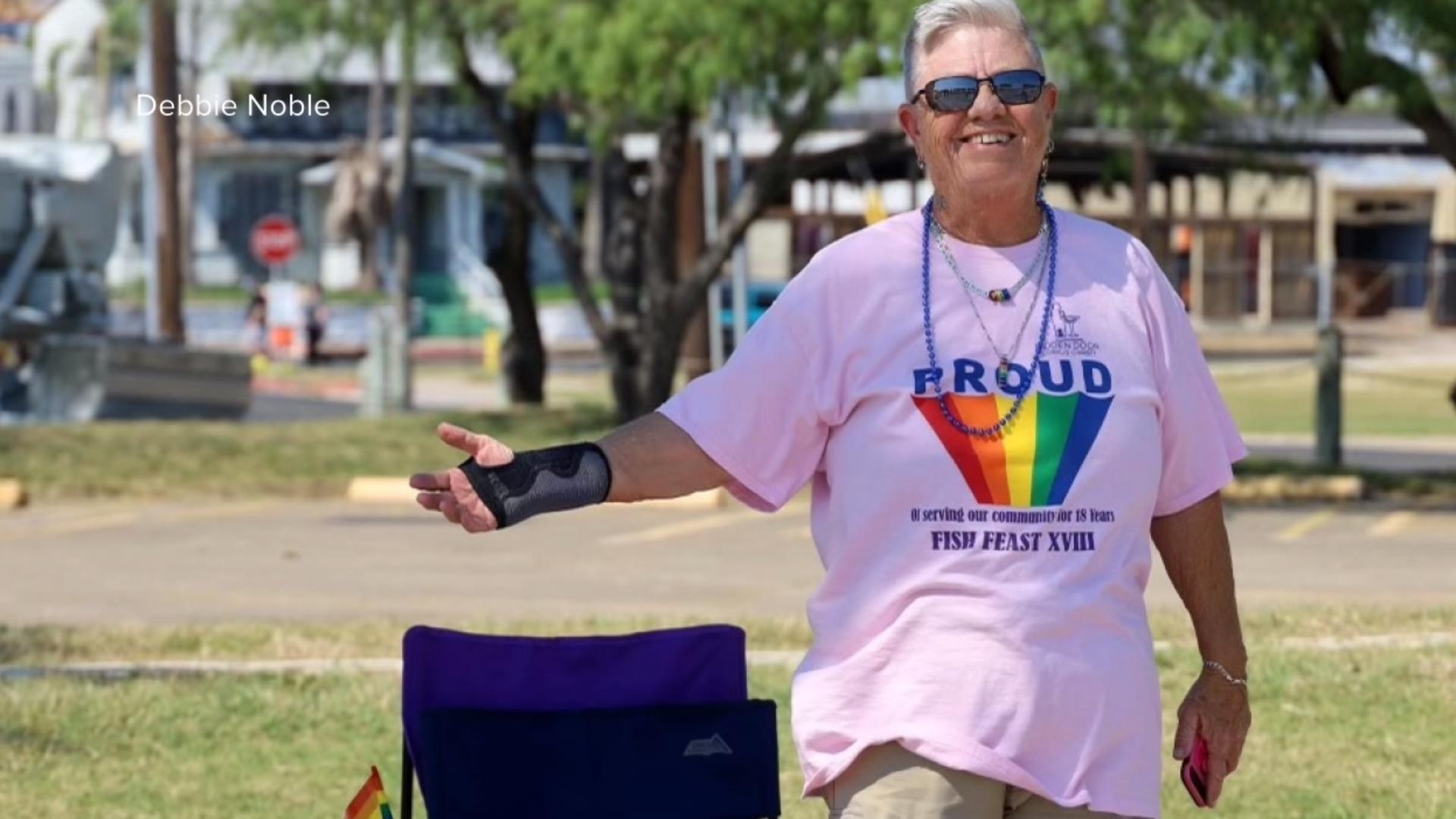CORPUS CHRISTI, Texas — Growing up in small-town Plainview, all Ginger Bryant wanted to do was follow in her family's footsteps and join the military.
She had an aunt who was a nurse in the service. Her grandfather, and so many other relatives, had served as well; but her father had other plans for her.
"My dad was trying to marry me off," she said. "My dad bought the ring, signed for the ring. I didn't even know about the guy. "(He wanted to) get me somewhere I wasn't. To be someone I wasn't."
He ultimately allowed her to enlist in the United States Air Force when she was 19, a decision that would end up shaping the rest of her life.
The country, and the Air Force that Bryant served, looked vastly different in 1971, she said.
"Back then, we had to have a purse," she said. "Wear a beret. Marching in heels. With a skirt on."

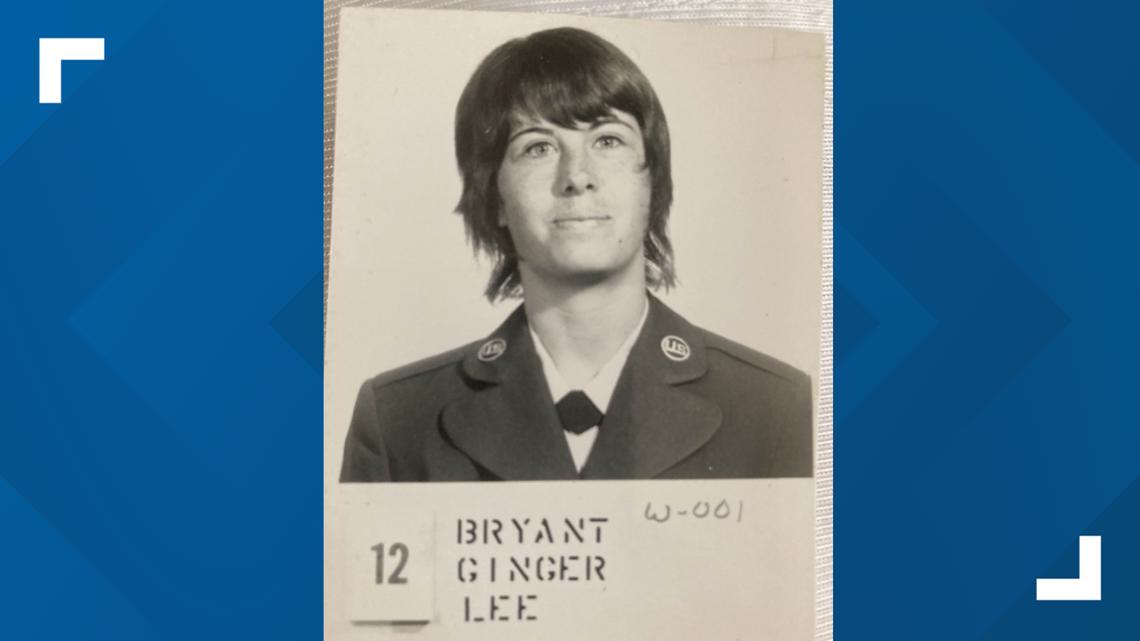
Military members also couldn't be openly gay. That policy didn't affect Bryant, personally, when she joined, but she saw what it did to others' lives.
"I had friends in the military who was gay, because, at the time, they had -- we called them 'witch hunts,' " she said. "If someone knew, they would do anything to get you out because it was illegal."
But that changed when she met a woman at North Dakota's Minot Air Force Base.
"(There) was this woman," she said. "I just fell in love. And I didn't even know she was gay. I didn't know what it was."
She saw the effects being gay while in the military had on others, and didn't want that for herself.
"I thought you either got locked up or you took yourself out," she said.
Not when coming out allowed her to finally be true to herself. She left the Air Force in 1974.
"When I came out, it was so natural," she said. "And I was happy. They got me out on honorable (discharge). I just couldn't live a lie."

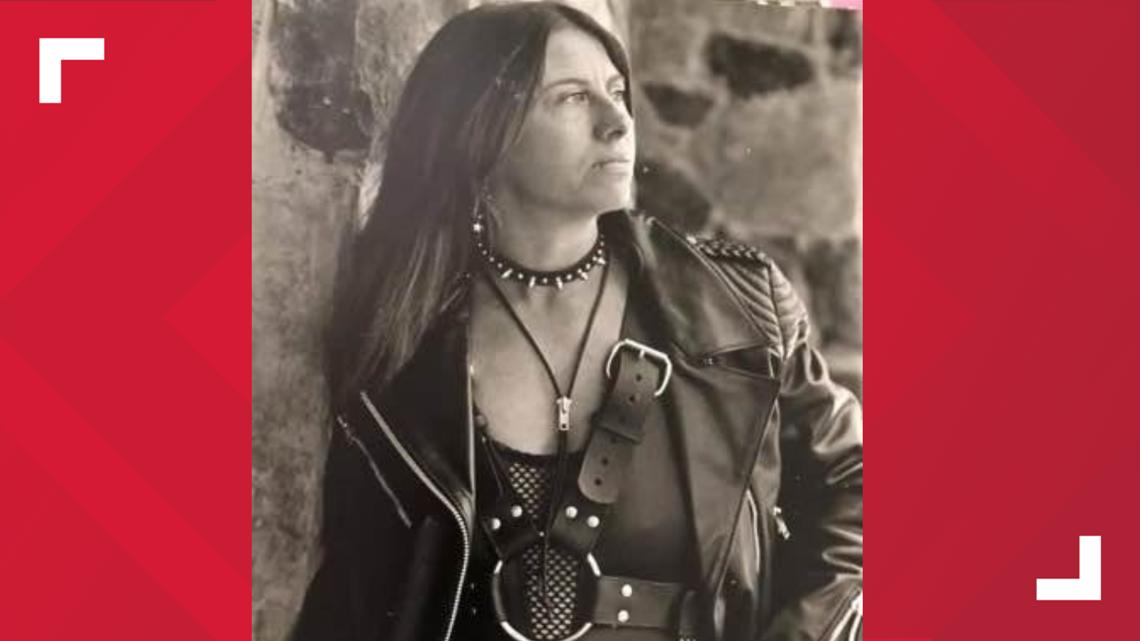
It's estimated there are one million US veterans who identify as part of the LGBTQ+ community, according to the Disabled American Veterans organization.
The military has made huge strides to being inclusive since "Don't Ask, Don't Tell" was repealed in 2011.
There are now a number of programs available to help gay and trans veterans, and LGBTQ+ veteran care coordinators who specialize in working with the LGBTQ+ communities.
VA-affiliated psychologist Melissa Plasencia said its important for LGBTQ+ veterans to know they can turn to the VA for help -- even those who were discharged under policies in place before 2011.
"It is possible to up to upgrade discharges that were given under 'Don't Ask, Don't Tell' for VA benefits," she said.
Primary- and specialty-care services, are offered, as well as mental-health services, suicide prevention, reproductive health services and sexual-health services.
The Corpus Christi/Rio Grande Valley VA has three counselors who specialize in LGBTQ+ counseling.
The VA's recent inclusivity policies are something that caught Bryant off-guard after her experience in the service.
"The thing that surprised me: A few years ago, they had an ice cream social at the VA clinic for gay pride," she said. "I was glad."
35 years after coming out, she still carries the weight of decades of discrimination, but is thankful for the advancements of inclusion she sees today.
"I'm still uncomfortable when I go out there," she said. "It is just something that stays with you."

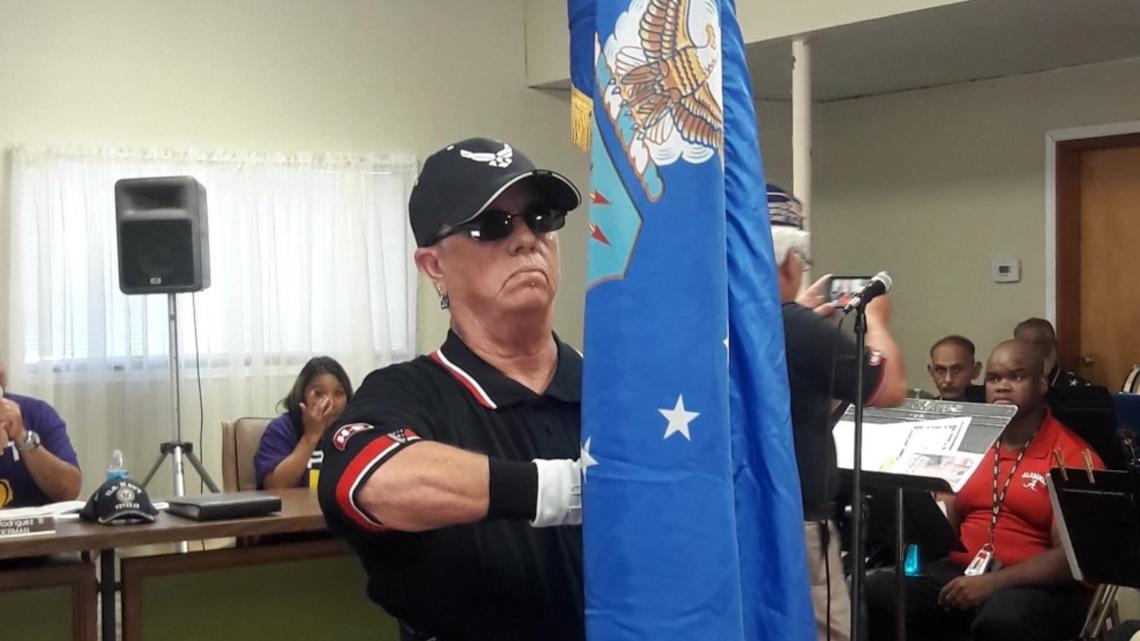
The U.S. Air Force veteran said while things have gotten a lot better for the gay community, it's still necessary to stand up for those who fear just being themselves, which is why she overcomes her discomfort to lead by example for other LGBTQ+ veterans.
That's why she's an active member of the VSO Volunteer Corps, and the Veterans Band of Corpus Christi, serving in its honor guard.
Her dedication also has led to her being honored by numerous veterans organizations throughout the city, including being named Veteran Advocate of the Year through the Corpus Christi Mayor's Committee for Veterans Affairs. She also recently was named Nueces County Veteran of the Quarter.
"I'm not out there just throwing myself, but I have to be visible for the children," she said. "Especially now. I can't let this -- some are committing suicide again. You shouldn't die because of who you are or who you love."

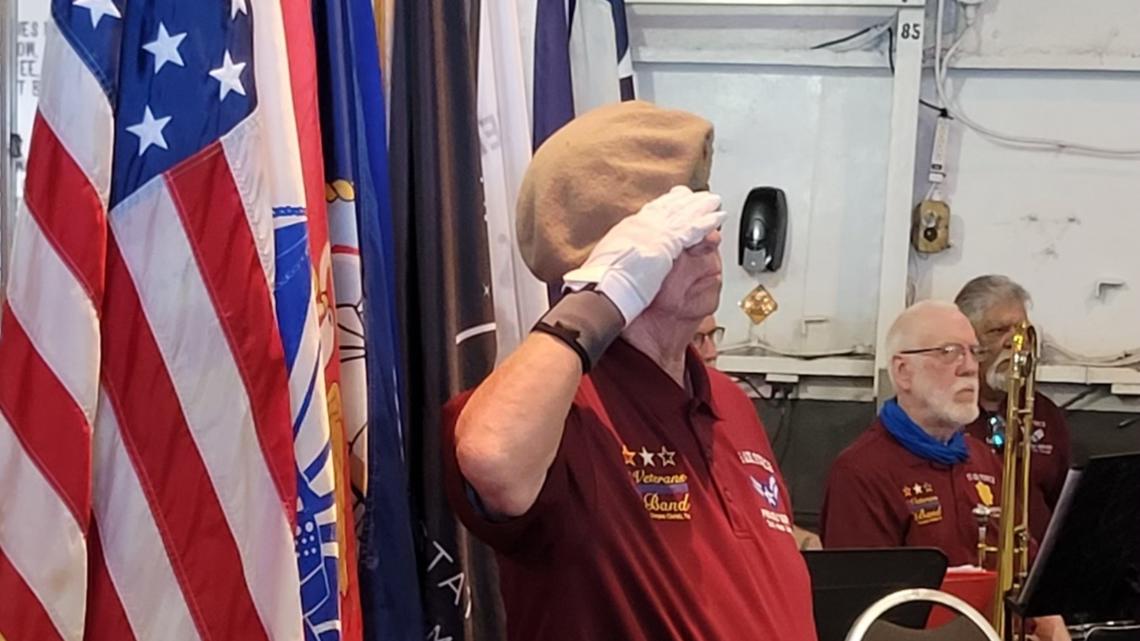
And she offers encouragement for those -- military or not -- who are struggling with their own identity.
"I hope you are strong enough, and brave enough, and have a heart of gold to live and be yourself," she said. "Always be kind. Try to be respectful, no matter what they throw at you."
The Veterans Crisis Line is available by calling 988 and pressing "1" for Veterans. It is available 24/7. Any veteran experiencing crisis or thoughts of suicide is encouraged to contact the Veterans Crisis Line.

